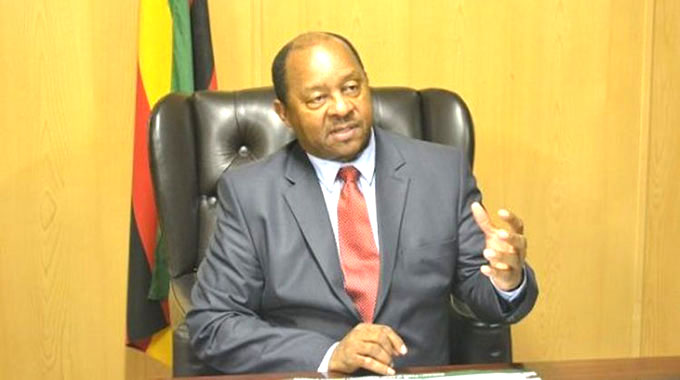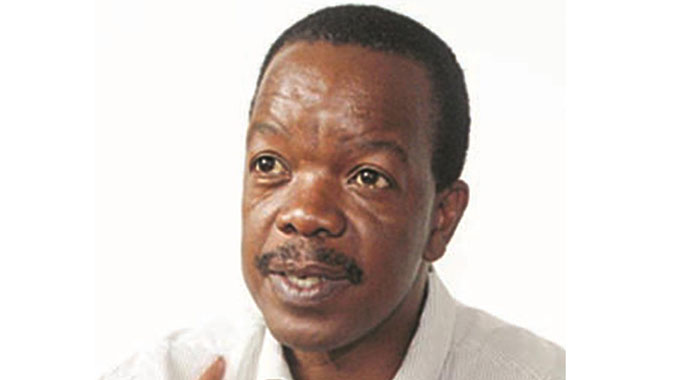Covid-19 threatens malaria progress

Paidamoyo Chipunza Senior Health Reporter
Covid-19 screening and testing will be integrated into malaria response to mitigate the recent spike in deaths and cases, with the death toll hitting 205, so far this year.
This would mean capacitating community health workers who are instrumental in malaria response in most rural communities to screen and test for Covid-19 and providing them with personal protective equipment.
The consideration followed challenges noted by Government that were prompted by the outbreak of Covid-19, although malaria so far remains the most dangerous.
Statistics on malaria availed by Government showed that deaths shot up from 127 between January 1 and April 23 last year to 205 in the same four months this year.
Similarly, cases have also increased from 117 715 last year to 203 964 this year between January and April.
Addressing a press conference ahead of the World Malaria Day today, Health and Child Care Minister Dr Obadiah Moyo said Zimbabwe had made great strides in reducing the burden of malaria in central and southern western parts of the country and was now concentrating on the eastern and northern parts, which border Mozambique and Zambia.
He said malaria incidences had gone down by about 83 percent from 36 per 1 000 people in 2 000 to 22 per 1 000 people in 2019.
Similarly, Dr Moyo said mortality had declined by 75 percent from 1 069 deaths in 2003 to 266 deaths in 2019.
He said 28 malaria endemic districts were already recording less than five cases per 1 000 people — a stage referred to as pre-elimination.
“However, these gains are being threatened by the Covid-19 pandemic, a disease which has common initial symptoms to malaria, which include fever, headache, generalised body pains and weakness,” said Dr Moyo.
“If not treated early, the disease progresses to severe malaria and the patient experiences difficulties in breathing, liver and kidney failure and confusion.”
Dr Moyo said on the other hand, ongoing efforts to contain Covid-19 impacted negatively on access to malaria testing and treatment services, especially in remote services.
Furthermore, Dr Moyo said the unavailability of PPEs, which the country was experiencing until Thursday, resulted in health workers, including community cadres failing to comprehensively examine and test malaria cases as they had signs and symptoms similar to Covid-19.
“Village health workers were reluctant to assist patients with say a fever because of the similarity in symptoms of malaria and Covid-19, but now since we have enough PPEs, we are now going to make sure that they are all well protected as they approach these patients,” said Dr Moyo.
“So, it was really an issue of PPEs, which are going to be distributed countrywide and we will be taking care of both Covid 19 and malaria.
“Once the village health workers get their PPE, they will continue doing their malaria tests and screening, but we can also train them to be able to test for Covid-19 so that we take care of both conditions at the same time.”
Dr Moyo, who is the current chairman of a grouping of eight SADC countries that joined hands to fight malaria — known as the E8 — said as countries focus on combating Covid-19, they should not lose focus on eliminating malaria.
The E8 countries are: Angola, Botswana, Eswatini, Mozambique, Namibia, South Africa, Zambia and Zimbabwe.
World Malaria Day is marked on April 25 every year and this year’s theme is “Zero malaria starts with me”.
“The theme for this year’s World Malaria Day reminds us of our roles and responsibilities in the elimination of malaria in the sub-region, hence the theme is very appropriate for all the countries that make the E8 bloc,” said Dr Moyo.
He said apart from threatening the gains made in reducing the burden of malaria in the region, Covid-19 was also stretching resources in health systems and hurting economies.
“This scenario calls for the need for close collaboration and sharing of lessons learnt and best practices for our countries,” said Dr Moyo.
“It is important that as we focus on controlling the pandemic, we do not lose focus of elimination.
“After all malaria is one of the major cause of mortality in our region.”
Dr Moyo said through collaboration, the E8 bloc made great achievements, which included cross border collaboration in combating malaria, establishment of a regional surveillance platform and 46 clinics, five of which are in Zimbabwe.
He said Zimbabwe had since integrated these clinics into its national health system and urged other countries to follow suit.
Malaria remains one of the major public health threat in Zimbabwe and the E8 bloc.











Comments